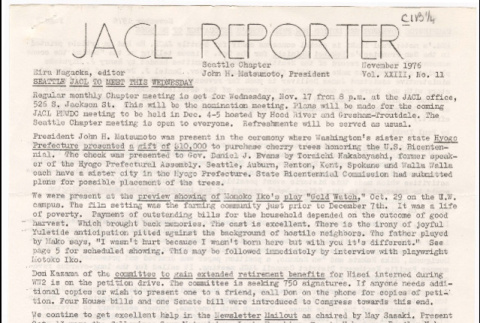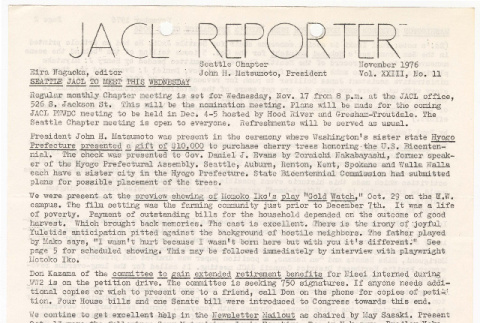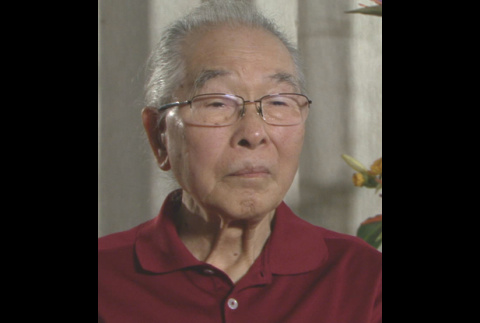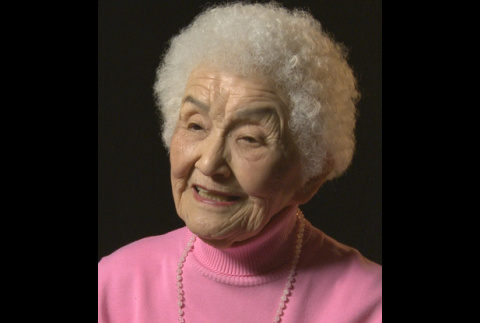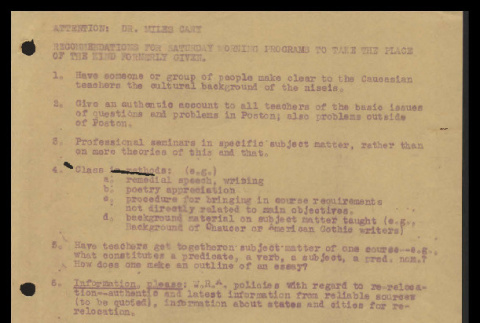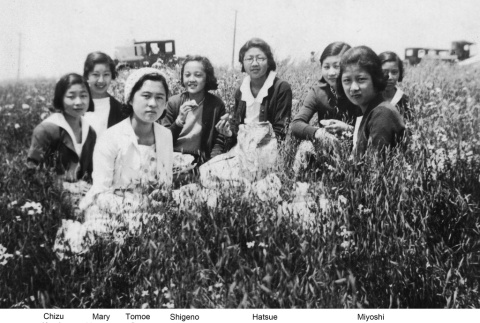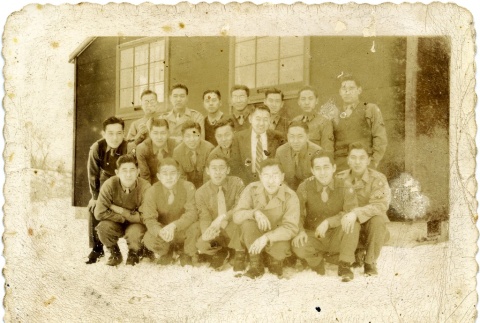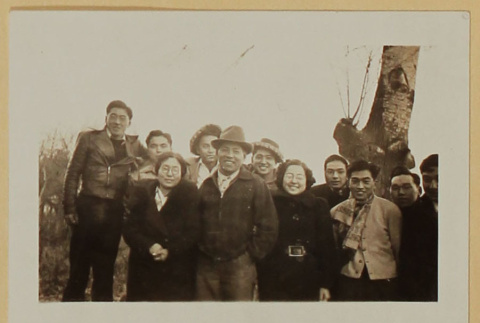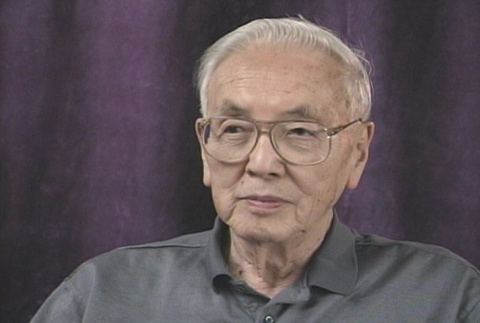520 items
520 items
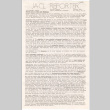
doc
Seattle Chapter, JACL Reporter, Vol. XIII, No. 11, November 1976 (ddr-sjacl-1-196)
Bulletin covering the following topics: new directory due in November; good recap of Paul Isaki?s recap on how EO Rescind proclamation came about. It was a reorint of Paul's letter to PC; Keiro update; Tetsuden Kashima named head of UW Asian Studies Program; profile on Sharon Maeda.
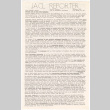
doc
Seattle Chapter, JACL Reporter, Vol. XIII, No. 11, November 1976 (ddr-sjacl-1-260)
Newsletter covering the following topics: New directory due in November; good recap of Paul Isaki?s recap on how EO Rescind proclamation came about. It was a reorint of Paul?s letter to PC; Keiro update; Tetsuden Kashima named head of UW Asian Studies Program; profile on Sharon Maeda.

Narrator Arnold T. Maeda
Nisei male. Born July 17, 1926, in Santa Monica, California. Grew up in the Santa Monica area where parents ran a nursery business. During World War II, removed to the Manzanar concentration camp, California. After leaving camp, worked as a chick sexer, technical illustrator in the aerospace industry, and a life insurance salesman. Returned to California …

Narrator Molly K. Maeda
Nisei female. Born November 23, 1919, in Dee, Oregon. Grew up in Dee, where parents had a farm. Finished college before the bombing of Pearl Harbor. During World War II, removed to the Portland Assembly Center, Oregon, and the Minidoka concentration camp, Idaho. After leaving camp, lived for a time in Milwaukee, Wisconsin, before returning to …
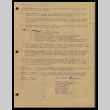
doc
Letter from Marvel Maeda and seven other author to Dr. Miles Cary, December 23, 1942 (ddr-csujad-55-1821)
Correspondence from Marvel Maeda, Catherine Embree, Kikuye Tanaka, Kunitani Anne, Mohri Eunice, Garret Nana, and Sunao Imoto to Miles Cary regarding recommendations for the Saturday morning school programs at Poston incarceration camp. See this object in the California State Universities Japanese American Digitization project site: sac_jaac_1824
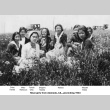
img
Group of young women at a picnic (ddr-ajah-3-336)
Caption below photo: Nisei girls from Alameda. CA, picnicking 1933
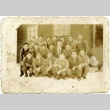
img
Group photograph of soldiers (ddr-densho-22-162)
Caption on reverse: "Front l to r: Tango Fujimoto, Tsutoru Shigeta, George Maeda, Kenichiro Sekiguchi, Sam Takamura, Satoru Sunamoto / 2nd l to r: Yasuhiro Fujita, Goro Igarashi, Yutaka Nakhata, Hisashi Kubota, Shoji Takimoto, Hironobu Hino / Standing l to r: Ben Pai, Teiichiro Hirata, Tsugio Aoyama, Tadayuki Ishizaki, Benji Shiroyama, Herbert Yanamura, Kazuo Kamoto."
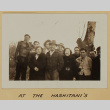
img
Visiting the Hashitanis (ddr-densho-287-669)
Photograph of a group of 9 people together outside. Written on the album page is "At the Hashitani's" in black ink. Front row left to right: unknown (possibly Takako Hashitani), Katsuji "Henry" Hashitani, Alice Hashitani, Milton Maeda, Roy Hashitani, Raymond Hashitani. Back row left to right: Paul, Kay, Bill, unknown, and George.
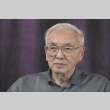
vh
Bill Hosokawa Interview Segment 19 (ddr-densho-1000-129-19)
Discussion of newspaper column written about nativists in California

vh
Bill Hosokawa Interview Segment 14 (ddr-densho-1000-129-14)
Impressions of the Puyallup Assembly Center, Washington: "What the hell are they trying to do to us?"; controversy over Jimmie Sakamoto's role in Puyallup, and being sent to Heart Mountain concentration camp, Wyoming

vh
Bill Hosokawa Interview Segment 1 (ddr-densho-1000-129-1)
Family background: father's work in Montana and California, mother's work as a school teacher

vh
Bill Hosokawa Interview Segment 8 (ddr-densho-1000-129-8)
Getting married and moving to Singapore to work for an American-style newspaper

vh
Bill Hosokawa Interview Segment 23 (ddr-densho-1000-129-23)
Finding the positive in the mass removal: Japanese Americans were forced out of ethnic enclaves into wider society

vh
Bill Hosokawa Interview Segment 17 (ddr-densho-1000-129-17)
Role as editor of a camp newspaper, the Heart Mountain Sentinel

vh
Bill Hosokawa Interview Segment 24 (ddr-densho-1000-129-24)
Moving to Colorado and working for the Denver Post, covering the Korean and Vietnam wars

vh
Bill Hosokawa Interview Segment 9 (ddr-densho-1000-129-9)
Working in Shanghai, anticipating the onset of war between the United States and Japan, and returning to the U.S.

vh
Bill Hosokawa Interview Segment 13 (ddr-densho-1000-129-13)
Description of hostile sentiment toward Japanese Americans following the bombing of Pearl Harbor

vh
Bill Hosokawa Interview Segment 12 (ddr-densho-1000-129-12)
Role of the Emergency Defense Council after the bombing of Pearl Harbor

vh
Bill Hosokawa Interview Segment 28 (ddr-densho-1000-129-28)
Combating racism: deciding whether or not a situation warrants speaking out

vh
Bill Hosokawa Interview Segment 16 (ddr-densho-1000-129-16)
Thoughts on the resisters: admired their courage, but felt that "it wouldn't gain us anything"

vh
Bill Hosokawa Interview Segment 29 (ddr-densho-1000-129-29)
Finding government papers documenting that the move to Heart Mountain was ordered as punishment

vh
Bill Hosokawa Interview Segment 18 (ddr-densho-1000-129-18)
Dilemma faced as editor of the Heart Mountain Sentinel: report the truth without provoking negative sentiment and riots

vh
Bill Hosokawa Interview Segment 6 (ddr-densho-1000-129-6)
Facing discrimination while pursuing a career in journalism: told by a professor, "No American publisher is gonna ever hire you"

vh
Bill Hosokawa Interview Segment 10 (ddr-densho-1000-129-10)
Observations about the world climate shortly before the outbreak of World War II
